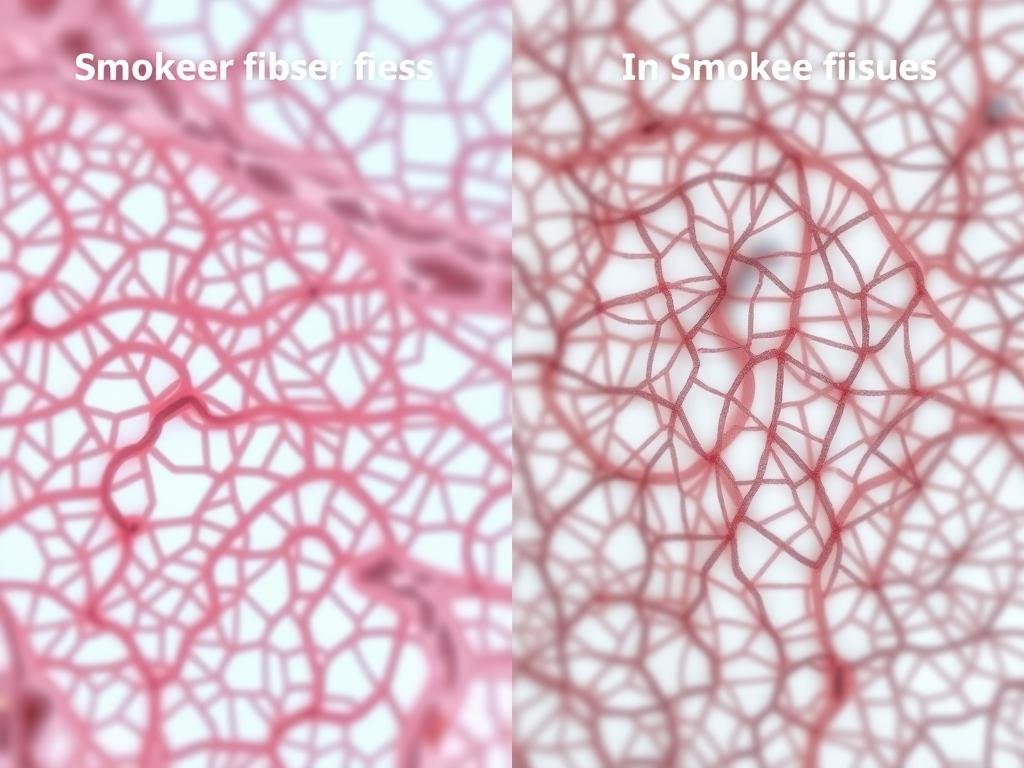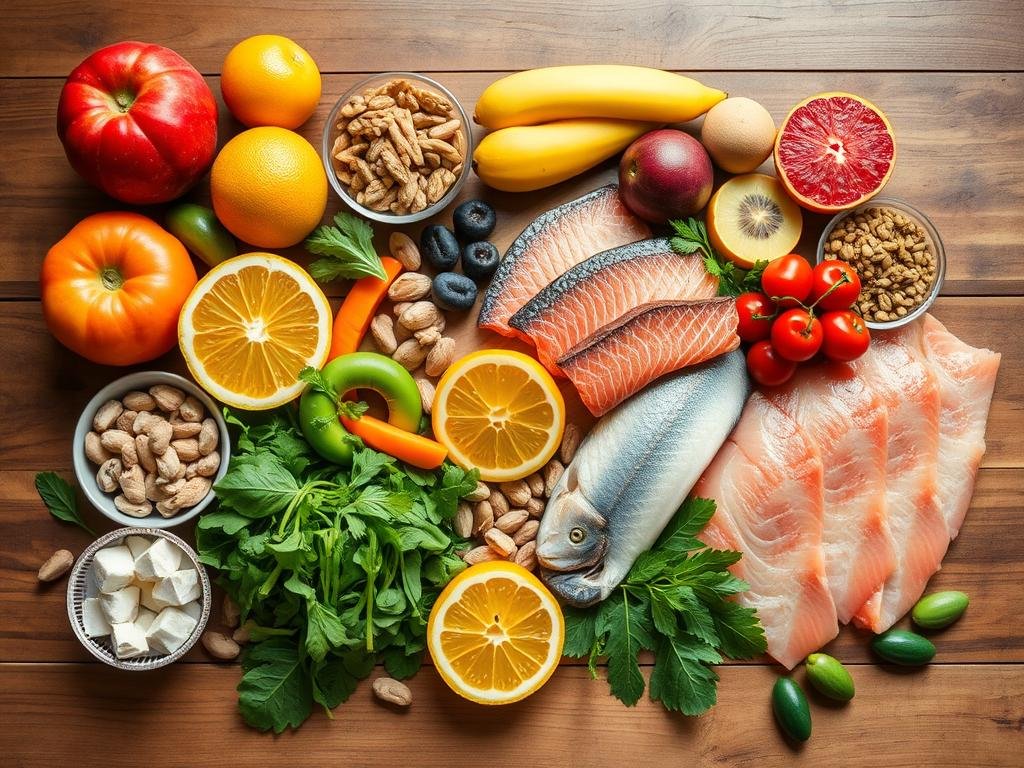
Understanding MCL Sprains: The Basics
The medial collateral ligament connects the femur to the tibia on the inner side of the knee
The medial collateral ligament (MCL) is a band of tissue located on the inner side of your knee. It connects your thigh bone (femur) to your shin bone (tibia) and helps stabilize the knee joint during movement. MCL sprains typically occur when the knee experiences a force that pushes it inward, stretching or tearing the ligament.
MCL Sprain Grades and Normal Healing Timeline
| Grade | Severity | Description | Normal Healing Time (Non-smokers) |
| Grade I | Mild | Slight stretching and microscopic tearing of ligament fibers | 1-3 weeks |
| Grade II | Moderate | Partial tearing of ligament fibers, moderate instability | 4-6 weeks |
| Grade III | Severe | Complete tear of the ligament, significant instability | 6-12 weeks |
Under normal circumstances, MCL sprains have excellent healing potential due to the ligament’s good blood supply. However, several factors can influence recovery time, with smoking being one of the most significant yet often overlooked factors.
How Smoking Affects Ligament Healing
Smoking introduces over 7,000 chemicals into your body, many of which directly interfere with the healing process. When it comes to MCL sprains, these effects can significantly extend recovery timelines and compromise the quality of healing.
Reduced Blood Flow and Oxygen Delivery
Nicotine causes vasoconstriction—the narrowing of blood vessels—which reduces blood flow to injured tissues. Dr. James Andrews, a renowned orthopedic surgeon, explains: “Adequate blood supply is crucial for ligament healing. Nicotine reduces blood flow to the MCL by up to 25%, significantly limiting the delivery of oxygen and nutrients essential for repair.”
This reduced blood flow is particularly problematic for MCL injuries because:
- Healing ligaments require increased blood supply to deliver repair cells
- Oxygen is essential for collagen synthesis and proper tissue regeneration
- Nutrients transported through blood are needed for cellular energy production
Impaired Collagen Production and Quality
Collagen is the primary structural protein in ligaments. A 2021 study published in the Journal of Orthopaedic Research found that smokers experience significant disruptions in collagen synthesis during ligament healing:
“Cigarette smoke exposure reduces type I collagen production by up to 40% and results in collagen with inferior biomechanical properties, leading to weaker ligament repair.”
This means that not only does healing take longer in smokers, but the repaired ligament may also be structurally weaker and more prone to reinjury.
Cellular Dysfunction and Inflammatory Response
Smoking disrupts the normal inflammatory response necessary for proper healing. While excessive inflammation can be harmful, a controlled inflammatory response is essential for initiating repair. Tobacco use creates an imbalanced inflammatory environment that:
- Impairs fibroblast function (cells that produce collagen)
- Reduces macrophage activity (cells that clean up damaged tissue)
- Creates excessive oxidative stress that damages healing tissues
MCL Healing Timeline: Smokers vs. Non-Smokers
Research demonstrates significant differences in healing times between smokers and non-smokers with MCL injuries. A 2022 study in the American Journal of Sports Medicine tracked recovery times in 245 patients with MCL sprains and found consistent delays in smokers:
| MCL Injury Grade | Non-Smoker Recovery | Smoker Recovery | Average Delay |
| Grade I (Mild) | 1-3 weeks | 2-5 weeks | 60% longer |
| Grade II (Moderate) | 4-6 weeks | 6-10 weeks | 65% longer |
| Grade III (Severe) | 6-12 weeks | 10-18 weeks | 70% longer |
The research showed that the healing delay was dose-dependent—heavier smokers (more than a pack per day) experienced longer delays than light smokers (less than half a pack daily).
Key Recovery Milestones
Recovery from an MCL sprain involves reaching several key milestones. Smoking affects each of these stages:
Initial Inflammation Phase (Days 1-5)
Non-smokers typically experience a controlled inflammatory response that initiates healing. Smokers often have a prolonged, dysregulated inflammatory phase that delays the transition to repair.
Repair Phase (Days 5-21)
Non-smokers begin collagen deposition and tissue regeneration. Smokers show delayed and diminished collagen production with poorer organizational structure.
Remodeling Phase (3 weeks-12+ months)
Non-smokers experience progressive strengthening and alignment of collagen fibers. Smokers show slower remodeling with less organized collagen and inferior mechanical properties.
Return to Activity
Non-smokers typically return to normal activities according to standard timelines. Smokers often require 60-70% more time to reach the same functional milestones.
Complications and Risks for Smokers with MCL Injuries
Beyond simply extending recovery time, smoking introduces several additional complications for those with MCL sprains:
Potential Complications for Smokers
- Higher reinjury rates – Studies show smokers are 2.7 times more likely to reinjure their MCL within the first year
- Chronic ligament laxity – Poorer collagen quality can lead to permanent joint instability
- Increased pain duration – Smokers report pain for 40% longer than non-smokers with similar injuries
- Greater risk of developing arthritis – Improper healing contributes to long-term joint degeneration
- Reduced physical therapy effectiveness – Smoking diminishes the body’s response to rehabilitation exercises
Surgical Implications
While most MCL injuries don’t require surgery, severe cases or those with multiple ligament involvement might. For smokers facing surgery, the outlook is concerning:
- 23% higher risk of post-surgical infections
- Delayed wound healing at surgical sites
- Increased risk of graft failure in reconstruction procedures
- Higher rates of post-surgical complications
Concerned About Your MCL Recovery?
If you’re a smoker with an MCL injury, specialized care can help minimize complications and optimize your recovery timeline. Our sports medicine specialists can develop a personalized treatment plan.
Evidence-Based Recommendations for Smokers with MCL Injuries

If you smoke and have suffered an MCL sprain, the following evidence-based recommendations can help optimize your recovery:
1. Smoking Cessation or Reduction
The single most effective intervention is to stop smoking during recovery. A 2023 study in the Journal of Knee Surgery found that patients who quit smoking at the time of injury experienced healing rates approaching those of non-smokers after just 4 weeks of cessation.
“Even reducing cigarette consumption by 50% can improve healing outcomes by approximately 30% in MCL injuries. Complete cessation remains the gold standard, but any reduction is beneficial.”
Consider nicotine replacement therapy (NRT) – Using patches, gum, or lozenges can help manage cravings while eliminating the thousands of other harmful chemicals in cigarette smoke that impair healing.
2. Enhanced Nutritional Support

Smokers require additional nutritional support to counteract the negative effects of tobacco on healing:
Vitamin C
Smokers have lower vitamin C levels, which is crucial for collagen synthesis. Consume 500mg daily from citrus fruits, bell peppers, and broccoli, or consider supplements.
Protein
Increase protein intake to 1.5-2g per kg of body weight daily to support tissue repair. Focus on lean meats, fish, eggs, and plant-based proteins.
Omega-3 Fatty Acids
These anti-inflammatory compounds can help counteract smoking-induced inflammation. Consume fatty fish, flaxseeds, or supplements (1-2g daily).
Antioxidants
Smokers experience higher oxidative stress. Consume colorful fruits and vegetables rich in antioxidants to combat tissue damage.
3. Modified Rehabilitation Protocol
Research indicates that smokers benefit from modified physical therapy approaches:
- Extended rehabilitation timeline – Plan for a 50-70% longer rehabilitation period
- Higher frequency sessions – Consider 4-5 sessions weekly instead of the standard 2-3
- Blood flow restriction training – This technique can help compensate for reduced circulation
- Careful progression – Advance through rehabilitation phases based on functional milestones rather than time
4. Enhanced Bracing and Support

Smokers may benefit from extended bracing periods:
- Use a hinged knee brace 25-50% longer than typically recommended for your grade of injury
- Consider functional bracing during return to activities even after standard protocols would suggest discontinuation
- Use compression therapy to help improve blood flow to the healing ligament
5. Medication Considerations
Discuss the following with your healthcare provider:
- Pentoxifylline – This medication improves microcirculation and may partially offset smoking’s effects on blood flow
- Careful NSAID use – While these reduce pain, long-term use may further impair healing in smokers
- Low-dose aspirin – May help counteract smoking’s prothrombotic effects without significantly impairing healing
Conclusion: Optimizing Your MCL Recovery as a Smoker

Smoking significantly impacts MCL sprain healing timelines, with research consistently showing 60-70% longer recovery periods across all injury grades. The physiological mechanisms—reduced blood flow, impaired collagen synthesis, and disrupted inflammatory responses—create both short-term recovery challenges and long-term complications.
While cessation remains the most effective intervention, the evidence-based strategies outlined in this article can help smokers optimize their recovery process. By understanding these impacts and working closely with healthcare providers, smokers with MCL injuries can take proactive steps to improve their outcomes.
Get Personalized Recovery Guidance
Our sports medicine specialists understand the unique challenges smokers face during MCL recovery. We can develop a customized treatment plan to address your specific needs and optimize your healing timeline.
Or call us at 1-800-555-KNEE
Note: This article provides general information and is not a substitute for professional medical advice. Always consult with a healthcare provider for personalized guidance regarding your MCL injury and recovery plan.
